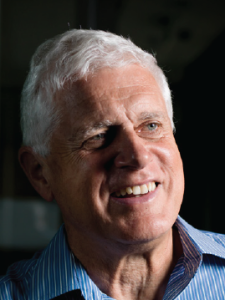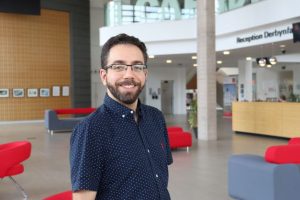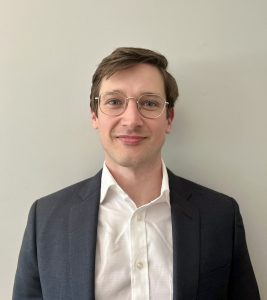The Lifetime Achievement Award is awarded each year by the ISPG to a scientist(s) who made a major contribution to the advancement of the field of Psychiatric Genetics.
Dorret Boomsma, Ph.D
Dorret Boomsma (Vrije Universiteit, Amsterdam) focuses in her research on the causes of variation in human complex traits from child- to adulthood as a function of genotype and environment. To this end, she established the Netherlands Twin Register which over the past 35 years recruited >200,000 twins and family members (https://tweelingenregister.vu.nl/). With the participation of these families, > 1400 papers were realized, that show the contribution of our genotype to nearly all human phenotypes across the lifespan.
She teaches quantitative genetics and is a member of the International Statistical Genetics workshop. Boomsma supervised over 60 PhD students and her work has led to national and international recognition, including the Spinoza Prize which is the highest scientific award in the Netherlands. She initiated and participates in multiple twin- and GWAS consortia and is a member of BBMRI-NL (Biobanking and BioMolecular Resources Research Infrastructure) and Odissei (Open Data Infrastructure for Social Science and Economic Innovations). In 2022 she was a awarded an honorary degree by the Faculty of Medicine, Helsinki University. She is a member of Royal Netherlands Academy of Arts and Science and the Koninklijke Hollandsche Maatschappij der Wetenschappen.
Professor Nick Martin
 Nick Martin graduated with honours in Genetics from the University of Adelaide in 1972 and obtained his PhD in genetics at the University of Birmingham. In 1978 he returned to a Research Fellowship at the Australian National University where he founded the Australian Twin Registry. After 3 years in the US he returned in 1986 to the Queensland Institute of Medical Research where he heads the Genetic Epidemiology Laboratory and continues longitudinal studies with twins of a wide range of complex traits of medical and behavioural interest. Most recently he has initiated projects to recruit large patient samples for GWAS of anorexia, depression and other psychiatric and neurologic disorders. He has published over 1500 papers and is a fellow of the Australian academies of Science, Social Science, and Health and Medical Science.
Nick Martin graduated with honours in Genetics from the University of Adelaide in 1972 and obtained his PhD in genetics at the University of Birmingham. In 1978 he returned to a Research Fellowship at the Australian National University where he founded the Australian Twin Registry. After 3 years in the US he returned in 1986 to the Queensland Institute of Medical Research where he heads the Genetic Epidemiology Laboratory and continues longitudinal studies with twins of a wide range of complex traits of medical and behavioural interest. Most recently he has initiated projects to recruit large patient samples for GWAS of anorexia, depression and other psychiatric and neurologic disorders. He has published over 1500 papers and is a fellow of the Australian academies of Science, Social Science, and Health and Medical Science.
THEODORE REICH EARLY CAREER AWARD
Theodore (Ted) Reich (1938 – 2003) was the first President of ISPG and was both an outstanding researcher and mentor to young scientists. The award is made for published work on psychiatric genetics that is of exceptional merit to candidates who have finished their training within the last ten years in the year of their nomination.
Lea Davis is an Associate Professor of Genetic Medicine, Psychiatry and Behavioral Sciences, and Biomedical Informatics at Vanderbilt University Medical Center. Her lab works at the intersection of genetic epidemiology, psychiatry, and medical informatics to investigate the genetic basis of a wide range of mental health conditions. She is co-PI of the PsycheMERGE network which seeks to advance precision psychiatry through pre-translational psychiatric genomics research in an electronic health record (EHR) setting. Using data extracted from medical records and linked with genomic information, Dr. Davis’s group discovers how polygenic risk, rare variant risk, and environment interact to result in common psychiatric diagnoses and their comorbidities. A major effort in the Davis lab focuses on understanding the biological and environmental linkages between mental and physical health. In addition to her work in psychiatric genomics, Dr. Davis has a long-standing interest in research ethics, genomic privacy, and furthering social justice through science. She currently serves on the ISPG Ethics committee, IDEA committee, and is a member of the ISPG Board of Directors.
GERSHON PAPER OF THE YEAR AWARD
In honor of Dr. Elliot Gershon, the International Society of Psychiatric Genetics presents the Gershon Paper of the Year Award to a recipient who has been published in the past year (June 2019 to present) in the psychiatric genetics field.
 Varun Warrier, Ph.D.
Varun Warrier, Ph.D.
“Genetic correlates of phenotypic heterogeneity in autism”
Varun Warrier is a postdoctoral research associate at the Department of Psychiatry, University of Cambridge. He completed his PhD in 2018 at the University of Cambridge, prior to which he completed an MPhil and an MSc at Cambridge and UCL respectively. His work focuses on trying to understand how genetics and social variables are associated with neurodevelopment and mental health conditions, predominantly in young people. In autism, Warrier’s interests lie in understanding the heterogeneity in both autism and profiles of co-occurring health conditions.
Antonio Pardiñas, Ph.D.
“Mapping genomic loci implicates genes and synaptic biology in schizophrenia” 
Antonio is a lecturer at the MRC Centre for Neuropsychiatric Genetics and Genomics, Cardiff University, and a member of the wider research team of James Walters, Michael O’Donovan and Sir Michael Owen. A former population geneticist, and still a close follower of advances in that discipline, he completed his PhD in Biology at the University of Oviedo (Spain) under the supervision of Belén López in 2014. He started working at Cardiff nearly immediately afterwards, investigating treatment resistance in schizophrenia using genome-wide approaches, collaborating closely with Sophie Legge and Elliott Rees. He currently leads a small group of ECRs working on antipsychotic pharmacogenomics. Antonio is also part of the Schizophrenia Working Group of the PGC and a co-investigator of the European Research Consortia REALMENT and PsychSTRATA.
 Vassily V. Trubetskoy, M.Sc.
Vassily V. Trubetskoy, M.Sc.
“Mapping genomic loci implicates genes and synaptic biology in schizophrenia”
Vassily Trubetskoy studied for his bachelor’s degree in Physics at Macalester College in St. Paul Minnesota. Next, he moved to work with Dr. Nancy Cox at the University of Chicago as an analyst in the Department of Medicine, Section of Genetic Medicine, working on exome analysis of Type II Diabetes, endocrine traits, and analysis software. From there, he went on to obtain his M.Sc. in Biostatistics from the University of Michigan School of Public Health, where he worked as a research assistant with Dr. Michael Boehnke. Next, he moved to work with Dr. Stephan Ripke in the Department of Psychiatry at the Charité Universitätsmedzin-Berlin, as a part of the Psychiatric Genomics Consortium (PGC). There he worked as a part of multiple working groups on genome wide association studies of psychiatric traits such as Schizophrenia and Major Depression, and bioinformatic tooling for the analysis of GWAS and related data.
Richard Todd (1952 – 2008) was an internationally known expert on the influences of genetics and environment on psychiatric illness in children. The award is given by the Awards Committee for excellence in the area of Childhood Psychiatric Disorders.
Dr. Brett Trost obtained his Ph.D. in Computer Science from the University of Saskatchewan, which is located in Western Canada, and he is currently a Research Associate in the lab of Dr. Stephen Scherer at The Hospital for Sick Children in Toronto. In addition to this most recent honour, Dr. Trost has been the recipient of numerous prestigious scholarships and fellowships. These include the Vanier Canada Graduate Scholarship and the Banting Postdoctoral Fellowship, which are the top awards offered in Canada at the graduate and post-doctoral levels, respectively. He was also one of approximately 600 young scientists worldwide selected to participate in the 2018 Lindau Nobel Laureate Meeting, which was attended by nearly 40 Nobel Laureates. In a 2020 study published in Nature, Dr. Trost and his colleagues at The Hospital for Sick Children showed, for the first time, that tandem repeat expansions play a role in the genetic etiology of autism. His current work focuses on leveraging the power of whole-genome sequencing to enhance our understanding of the roles of all types of genetic variation in autism. Going forward, Dr. Trost is interested in developing and using computational methods to improve our knowledge of the genetic determinants of human health, in particular neurodevelopmental and neuropsychiatric conditions.
HUGH GURLING AWARD
HUGH GURLING WINNER
Maryanne Mufford, University of Cape Town | The Genetic Architecture of Amygdala Nuclei
HUGH GURLING FINALISTS
Julia Antonieto, Federal University of Sao Paulo |Identification of Copy Number Variation (CNV) in a Cohort of Children and Adolescents at High Risk for Psychiatric Disorders
Caroline Camilo, University of Sao Paulo Medical School | Identification of O-Linked N-Acetylglucosamine Transferase (OGT) Expression in Human Placentas as a Potential Biomarker of Prenatal Stress Exposure
Gabriela Chavarria-Soley, Escuela de Biologia, Universidad de Costa Rica | How Does the Public in Latin American Countries View Genetic and Genomic Data Donation for Research?
Bharath Holla, National Institute of Mental Health and Neurosciences, India | Evidence for Shared Neurocognitive Deficits in Major Psychiatric Illnesses – Cross-Disorder Evaluation of Bifactor Model
Srividya M, National Institute of Mental Health and Neurosciences, India |Identifying Neurodevelopmental Mechanisms Related to Valproate’s Teratogenic Effects
Maryanne Mufford, University of Cape Town | The Genetic Architecture of Amygdala Nuclei
Henriette Raventos, University of Costa Rica | Repercussions of the Genomic Medicine Narrative in Psychiatry on Beliefs, Clinical Practices and Public Policy in Costa Rica: A Qualitative Study
Diego Luiz Rovaris, Department of Physiology and Biophysics, Instute of Biomedical Sciences, University of Sao Paulo | The Shared Biology between the Growth Hormone (GH)-Insulin-Like Growth Factor (IGF)-I axis, Neurodevelopmental and Related Neuropsychiatric Disorders
Biju Viswanath, National Institute of Mental Health and Neurosciences, India | Early Insights from the Accelerator Program for Discovery in Brain Disorders Using Stem Cells





